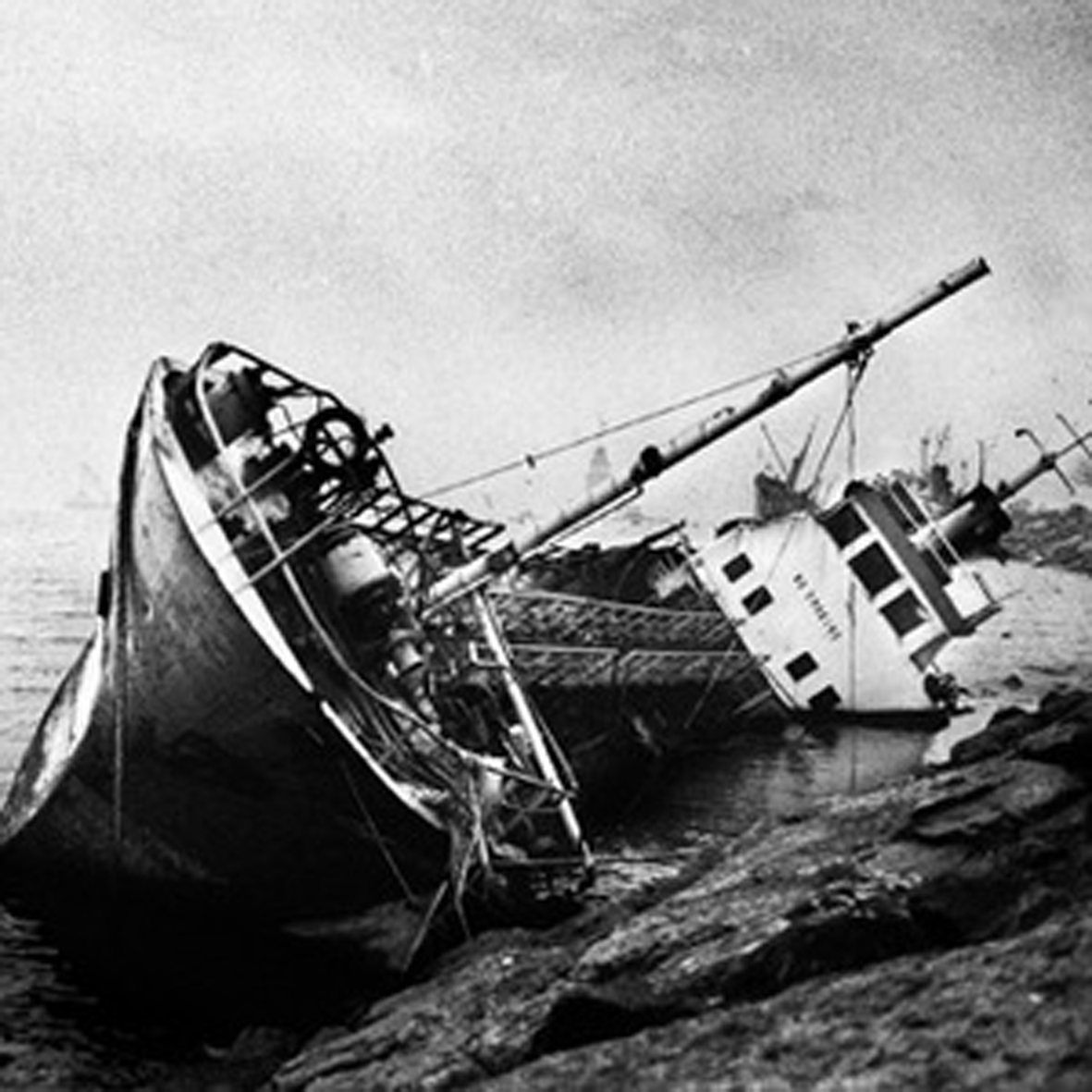
Back in 2013, Oiseaux-Tempête’s excellent debut established them as something akin to Europe’s answer to Godspeed You Black Emperor, which is not a bad niche to occupy at all.  For their follow-up, however, the band have changed things up a bit, significantly altering both their approach, their vision, and their line-up (they enlisted bass clarinetist Gareth Davies).  While they generally seem like good moves in theory, the aforementioned innovations have resulted in something of a confounding and (at best) lateral transformation, as Ütopiya? is generally a bit weaker and more bombastic than its predecessor.  There are unquestionably a handful of bright and inspired moments to be found, of course, but Ütopiya? mostly lies somewhere in the unfortunate no-man’s land between "misstep" and "transitional album."
From their inception, Oiseaux-Tempête offered a lot of promising elements that distinguished themselves from anyone treading similar territory.  For one, their work was conceptually intertwined with that of photographer/filmmaker Stéphane C, who was documenting the political and economic chaos in Greece.  Also, the band's debut adeptly balanced their more straight-forward post-rock tendencies with a healthy amount of electronic touches and well-placed field recordings and snatches of dialogue.  With Ütopiya?, however, the band have toned down their more conceptual, ambitious, and multimedia-inspired tendencies.  There is still a vague political theme (this time centered on Sicily and Istanbul), but the foursome have musically chosen a more muscular and stripped-down sound, presumably one that translates much better to live performances: minimal layering, minimal electronics, and plenty of explosive crescendos.  In some ways, that works quite well, leaving plenty of room for Stéphane Pigneul's visceral bass riffage and Frédéric Oberlands' alternately tender and explosive guitarwork.
Unfortunately, there are a couple of very persistent flies in the ointment.  The main problem is that Ütopiya? has the relentlessly dour tone of a prolonged lament.  That may be entirely befitting of whatever they are trying to convey politically, but it unavoidably makes the album a bit of a slog to get through.  In fact, the slow-motion brood-fest only truly lifts at the very end of the album with the absolutely stellar guitar-shimmer-and-crickets reverie of "Aslan Sütü (Santé, Vieux Monde!)."  The CD version additionally tacks on yet another gloom-free piece in the propulsive 22-minute percussion work-out and space-guitar improv of "Palindrome Series (Live at Saint-Merry)," but the first nine songs on the album are generally very much all in the same vein, both mood-wise and structurally.  That structure part is the album’s second shortcoming, as every song seems to follow a very similar formula at a very similar (and rather leaden) pace: Oberland plays clean, delay-heavy melodies and arpeggios over a meaty bass riff while Davies' clarinet meanders around the central theme, then it all gradually escalates to a dramatic and stomping crescendo of crash cymbals and guitar pyrotechnics.
Admittedly, the band conjure up some very appealing variations on that formula, but it is a conspicuous formula nonetheless.  The most significant twist is definitely "Ütopiya / On Living," which features a haunting monologue courtesy of The Ex's G.W. Sok.  Yet another highlight is Oberland’s absolutely apocalyptic wah-wah firestorm at the end of "Someone Must Shout That We Will Build The Pyramids."  The other great moments are a bit more understated, however, best exemplified by the way Pigneul’s disco-damaged and PIL-worthy bass line emerges from the sound collage of "Yallah Karga (Dance Song)."  I am also quite fond of "Soudain Le Ciel," as drummer Ben McConnell slows down his standard crawl to an appealingly stumbling and broken-sounding degree.
Other times, unfortunately, Oiseaux-Têmpete misjudge an entire song, laying on the sadness and drama too heavily without anything particularly compelling to offset it.  "Requiem For Tony," for example, sounds like the crescendo of an early King Crimson epic without any of the surrounding song.  I also winced a bit when the dramatic minor key piano appeared in "Fortune Teller" and wished that the otherwise masterfully hallucinatory "I Terribili Infanti" did not depend so heavily upon a foundation of melancholy acoustic guitar.  In general, however, Ütopiya? misses the mark solely because the band is so hell-bent on evoking one mood and just keep going back to same well over and over again.  That said, I have a personal and highly subjective antipathy towards anything resembling cinematic instrumental rock, so those without such a bias will probably like this album considerably more than I did, as there is an enormous amount of that sort of thing here.  I mostly just like Ütopiya? for "Aslan Sütü (Santé, Vieux Monde!)" and Oberland’s howling guitar solos though.  While I believe that this album occasionally attains greater heights than Oiseaux-Têmpete’s debut, the songs are just not fluid and varied enough to cohere into nearly as strong of a whole.
 
Read More

